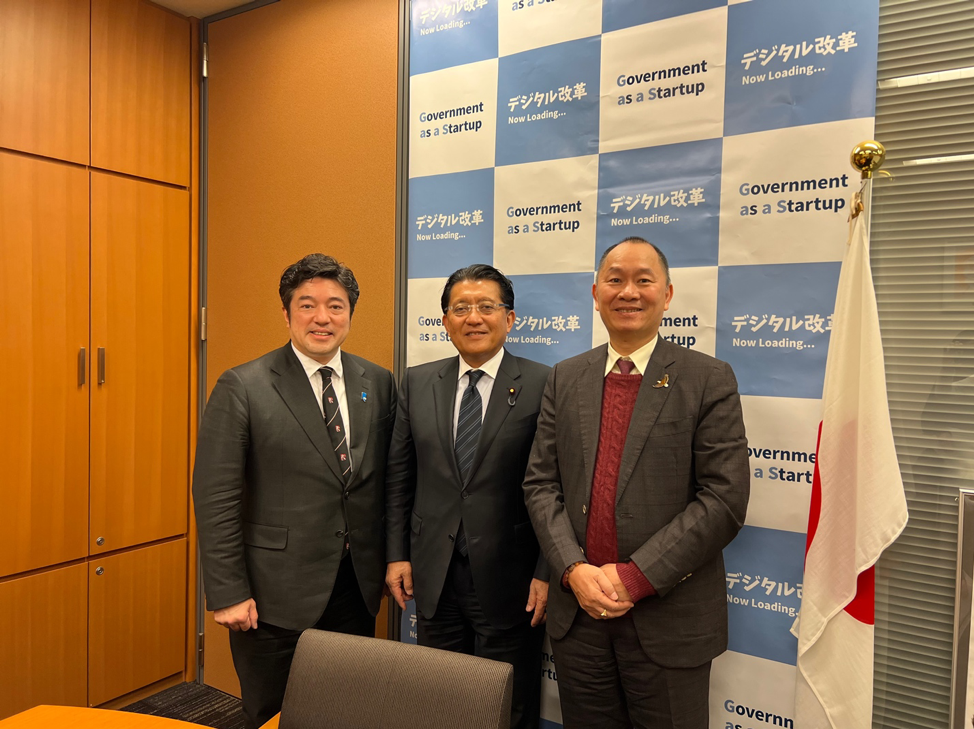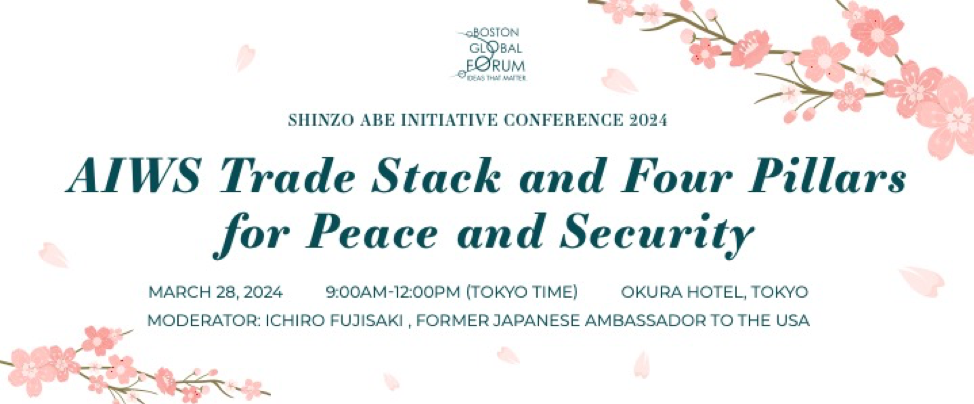My name is Yasuhide NAKAYAMA, Coordinator of the Global Alliance for Digital Governance in Japan and Taiwan. I am pleased to announce the hosting of the Boston Global Forum’s SHINZO ABE INITIATIVE CONFERENCE 2024. I would also like to express my deepest gratitude to the professors, experts, and specialists who have joined us despite their busy schedules. One fundamental element of our discussions is how, based on the lessons of 20th-century history, people can pursue their own notions of happiness and well-being within a framework of fairness and justice to the fullest extent. Furthermore, I extend my gratitude to all who contributed numerous suggestions and ideas, and worked tirelessly to compile these proposals. The Boston Global Forum is based on “four pillars” in its mission to foster global peace and stability. These pillars focus on politics, science and technology, business, and the peaceful use of drones:
- Politics: We aim for conflict resolution and peacebuilding through the “The Global Leaders Peace Community”, promoting dialogue and mediation to maintain global peace and security.
- Science and Technology: By forming a community of scientists and engineers, we direct the power of science and technology towards peaceful purposes, understanding the causes of conflicts scientifically and leveraging this knowledge for peacebuilding.
- Business: We create a community of business leaders and entrepreneurs to use economic power to foster social progress and peace, emphasizing ethical business practices and social responsibility.
- Drone Technology: Through the “Drones for Peace Community”, we aim to manage the potential risks while utilizing drones for humanitarian, surveillance, and disaster relief purposes. These four pillars interact to contribute to peace and stability.
The Boston Global Forum seeks to build a better future for the world through cooperation and innovation in these areas. We must also discuss the expansion of traditional domains of conflict and the remarkable changes in technology. In the 20th century, traditional battlefields included land, sea, and air. In the 21st century, we have added space, cyberspace, and the electromagnetic spectrum. In Japan, in collaboration with the United States, we ensure the safety and security of space around the clock, every day of the year. This commitment is based on international agreements for the peaceful use of outer space and aims at mitigating risks. Countries worldwide should work together to maintain peace in space. However, China poses potential threats to the peaceful use of space, such as deploying “killer satellites” that can destroy or interfere with other nations’ satellites. It is well known that China’s actions of shooting down its satellites have spread space debris, posing a risk to the peaceful use of space. In cyberspace, at critical times like elections in democratic countries, various forms of cyberattacks, including the spread of fake information using generative AI, are being conducted. The physical destruction of cyber infrastructure, as witnessed in Crimea by Russia, is a reality. The electromagnetic spectrum, as well, has become a field where comprehensive strategic attacks are applied, necessitating the urgent development of defensive technologies and strategies. However, I must conclude by addressing the real security risk for my beloved Japan: the drastic impacts of population decline and aging. The Japanese government must understand global situations well and promptly and strategically construct policies addressing human risks, moving swiftly to implementation. Currently, the defense force’s fulfillment rate is at 93%. As the Taiwan Affairs Officer at BGF, I would like to make a statement. I believe that the situation surrounding Taiwan is becoming increasingly tense in various respects. I am convinced that protecting Taiwan’s democracy is integral to safeguarding democracy worldwide. I earnestly request your collective wisdom and efforts to overcome the challenges that lie ahead, alongside Taiwan. Thank you for your attention.
Yasuhide NAKAYAMA

